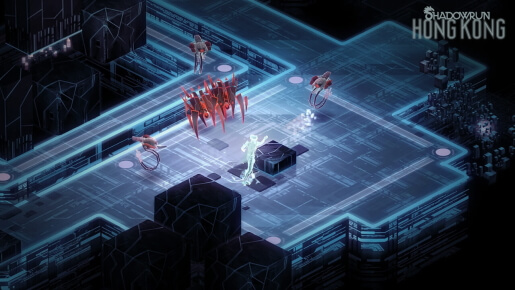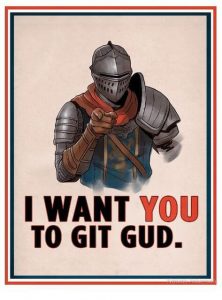Welcome back! Today, I’m putting out my views on investigation-focused games. Adventures with teams of specialized player characters. For a few sessions now we’ve been playing an X-Files, SCP, CSI/NCIS, procedural drama style game. The characters are fun and the investigations are weird and wacky. On paper and even during play it’s been a great time. One of the more memorable I’ve had in recent memories. But, I noticed a problem creeping up. A problem with this particular style of game. And that’s party splintering and scene juggling. If you’ve played tabletop RPGs you’ve heard or experienced firsthand the sage D&D advice, “never split the party.” I don’t 100% agree with the rule as D&D law, but it’s a good rule of thumb. Sometimes you want to split the party so bad things will happen. The ‘Instigator’ player type is all about this. If things stay comfortable for too long this character is going to start some hi-jinks.

The real problem here is “split the party” becomes a significant part of the game. This happened in our game. And the Game Master goes from running one game to running 2-6 separate games. And all those games are happening at the same time in the game world. That leads to 2-3 distinct problems.
Problem #1, Juggling Focus
Hopefully you’ve heard, people suck at multitasking. A lot of research has shown the human brain is quite bad at juggling more than one thing at a time. Because the human brain works a lot like a computer CPU. It can handle one piece of information at a time. And like a CPU when you try to juggle many things at the same time, it takes longer to accomplish each task. I can write this blog and make dinner, it’s faster to do each of those activities in series than run back and forth between them. Additionally, the human mind suffers fatigue from task juggling. It takes time to reorient our brains to working on one thing and not the other and increases the chance we make mistakes. Now, computers have an edge over the human brain. As technology improves they become faster. Additionally, we learned you could put multiple cores on a CPU. That allows a CPU to process information in parallel. Turning all its work into team projects. What does that mean for us? Well, good luck willing your brain to be faster. You can try to eat healthy, workout, and create a distraction-free work environment. That’s about the best you can do. Being a GM is a solo affair so you can’t rely on a team. Though I have had experience juggling a game with a GM partner. It has pros and cons. For a very interesting take on duo-DMing check out The Dragon Friends. One person is the DM and the other plays the NPCs. Trying to juggle 2-6 different games at the same time takes a lot of focus and brain energy. It will sap your GM reserves quickly so it’s not something you want to do often at the table.
Problem #2, Metagaming & Juggling
One thing that makes ‘split the party’ so useful as a narrative device is each character ends up with different pieces of the plot jigsaw puzzle. But, when you have human players the temptation to metagame is strong. The unfortunate reverse side is the best way to avoid metagaming is to not listen. To not pay attention to the game. It’s a double-edged problem. If the player pays attention they must make a directed effort not to use information from another PC’s viewpoint. Or, the player doesn’t pay attention to the table and you have to re-explain everything when the PCs finally do exchange information. And the worst case scenario, the waiting player checks out completely. Which leads us to Problem #3.
Problem #3, Juggling Limelight
Running 2-6 different games takes time because you can only run one player at a time. So, like in my experience, if we’re running three different games I’m on standby for two-thirds a game session. That’s how I realized it was a problem. My character was visiting a person of interest’s home under fake credentials to do an interview and snoop around the home for clues. In reality it was 10-20 minutes, but it felt like 45 minutes. I found myself looking around the table to find the other players completely disengaged. Their cell phones were out and I saw them losing interest in the game. At the same time, I had to be thorough in the investigation and interview or else the game would drag on longer. While the team of PCs are specialized, they do that in different ways. The combat specialist doesn’t have much to do in investigations other than protect someone else while they’re working. The lab tech sith zero social skills has no motivation to come along on an interview task. Instead the lab tech spends time doing checks and interpreting results. Take the TV show NCIS for example. Abby Sciuto might be a fun character concept, but she has little screen time outside of the lab.
Some characters are doomed to separation and less limelight because of their specialization. The characters may need stationary equipment to do their thing, like a lab or workshop. Often times this can end up being a simple series of extended checks. “You spend two hours running experiments on the tissue sample. Give me another medicine roll.” That takes far less time than dialogue with an NPC.
Some characters have separate mini games they play as part of the rules system, like Shadowrun’s Deckers. Or they require operating from a safe area, like astral projection (Vampire Hunter D, Bloodlust) or Riggers (Shadowrun). And even if one of the PCs stumbles upon a situation where having another teammates specialty would be helpful, they’re not there. If the lab tech is investigating forensic evidence in the lab, she’s not on the scene with my character when he comes across a new bit of viscera that needs investigating.
What Do You Do?
At this point we have a solid understanding of the problem. We understand its causes, effects, and why it’s a problem. The only thing left is how to fix it. I’ll admit, this took some thought. Partly because this doesn’t seem to be a problem for a lot of games. It appears to be more prevalent in certain genres and rules setting than others. When I think about traditional D&D games I’ve played this situation rarely arises. Why is that? The first reason that came to mind is fantasy, horror, and sci-fi adventures tend to be location-based adventures. The party needs to travel some place and there’s nowhere else for them to be. In a horror game you’re not supposed to be prepared for horror to hit. In a fantasy game you’re delving dungeons, and in a sci-fi game you’re on a spaceship. By nature a spaceship is a small, enclosed space. Even if a lab tech was in the medbay they couldn’t be more than 15 minutes away from the action on a huge ship. This is a stark parallel to the modern game my group has been playing. Where checking on a patient in the hospital is a 1.5 hour drive away. If someone goes on that run they’re out of pocket for hours in the game world. Location-based adventures keep the team together. PCs tend to stay together in a location adventure, because safety is a real issue. There’s no illusion of security. Your PC can assume driving 1.5 hours to a hospital in the nearest city isn’t a safety issue. That’s vastly different than leaving a PC alone in an alchemy lab you just discovered in a dungeon crawl.
Easy then, make sure you constrain the PCs to not-guaranteed safety types of locations. But, what about those PCs that need the specialized equipment? Science fiction often hand-waves this with powerful, handheld scanning devices. You could provide player characters with a kit that allows them to do perform field work. A technician may have a small torch, solder, and tools in a kit they can carry around. The same way a field surgeon has a fully-stocked first aid kit. Your lab tech should be able to run standard litmus-style tests for things like bodily fluids and gunshot residue. They could even do more specific things like blood splatter analysis and field autopsies. Just try to facilitate ways these characters can do their specialty without moving somewhere else. For instance, the character I’m playing is also a bit of a computer sleuth. Because of that I make sure he carries around a mobile hot spot, and can get satellite access to use the internet most of the time.
Yes, part of this responsibility should be shouldered by the players. Of which, my table members were not pulling their own weight.
I stated in the game we were playing my character was doing an interview and snooping around. What I didn’t say was one of the other PCs drove my character to the location and was sitting in the car for almost the entire scene. Often I can rely on this player to ‘get it,’ because he’s an experienced role player. I expected the moment my character went in the house he would leave the car to eavesdrop or rummage around the property for clues.
Unfortunately, in this instance, he did neither. I spent most of the time doing a one-on-one session with the GM. It wasn’t until my character was finished with the interview and being guided around the property he decided to put his character in motion. But, that failing is equally on the GM and pushes us to the next point.
Make sure you scene jump. There is no rule that says you have to play every scene start to finish. One of the table craft skills I learned early as a GM is to scene jump. I learned this from watching more experienced GMs when the party split. An experienced GM has a foot in the game and a foot in reality, always keeping an eye on the table and reading the energy levels. When I see people start to disengage and pull out their phones I’ll jump scenes to keep the energy up. It’s as simple as asking a player about their character. In the middle of a long scene? Turn to another player and say, “What is [CHARACTER NAME] doing while this is happening?” This is a powerful tool, even if the PCs are all in the same room.
In my experience, players fall into one of three groups. One third jump to action to tell you all the things they’re doing. After that, one third fill in the gaps voluntarily. “While [CHARACTER NAME] does that I’m going to do this.” The last third of players are often background/shy players. Those players often need a nudge. You can open the dialogue by restating what the other players are doing.
Here’s an example…
GM: "And, with that the last cultist falls to the floor with a wet thud and ceases to move. What do you do?"
Player 1: "Nice! I'm going to check the necromancer's desk for information about the ritual."
Player 2: "While he does that, I'm going to roll the bodies for loot and clues." GM: "Sounds good, both of you roll Intelligence, Investigation checks."
Player 3: "..."
GM: "[Character 1] is searching the necromancer's desk, [Character 2] is looting the corpses. What is [Character 3] doing?"
Player 3: "Uh... I move to the doorway and watch for reinforcements."
GM: "Awesome, roll me a Wisdom, Perception Check."
And sometimes you just need to cut a scene short. If you feel the scene is running too long or player interest is waning don’t hesitate to cut a scene short. After 5-10 minutes my GM should have cut short my interview and investigation short. He should have said something like, “you continue to interview [NPC], give me a Charisma, Persuasion or Charisma, Investigation check. Your choice.” Tell the player if they gain more pertinent information and then juggling focus to another player. You can always circle back and ask if they had any final questions for the NPC. Another tip is to reduce time requirements. In most rule systems extended checks take time in hours or days. Just as real science takes time. But this isn’t real science, it’s a game. It’s not fun for a player to twiddle their thumbs waiting on an in-game computer to run four hours of simulations. Especially when other characters are doing exciting things; interviewing a twitchy suspect then chasing the suspect down seedy back alleys culminating in a hostage situation. You can shorten time requirements when necessary. It’s more impactful and fun at the table if the lab tech can call the field team with the info they need, just in time.
Other times you need to make a call about what characters can and cannot be in your game. I know people who love Edge of the Empire (Star Wars RPG), but the party has to be all jedi or no jedi. Being a space wizard apparently overshadows the PCs who are mere mortals. The same being true for Shadowrun Deckers. Deckers are cool, but hacking is a completely different system within Shadowrun. It’s difficult to integrate into adventures in a way where every other character isn’t sitting around waiting.

Taking the same idea to the next level, you can refuse character concepts. Because you’re the GM it’s worth considering you have final approval on character concepts. While it’s not en vogue to control another player’s character generation it is your game and it’s your right to do so. Especially when you want to make sure the character will be fun to play. You’re protecting the player from creating a situation where they have a bad time playing the character. It can be helpful to make sure characters are not too specialized in one area. Make sure the combat monkey has at least a little social and investigative skill so they can at least assist other PCs in those scenes. Just, remember to re-balance your TN/DC to reflect non power gamer levels of specialization.

But, the optimal solution is simple. Become a better Game Master. I don’t mean the “Git Gud” mentality. I’m saying this particular type of game isn’t for an inexperienced GM. It requires a ton of focus splitting, narrative improvisation, and table management. As a GM you’re going from running one game to running multiple games simultaneously. Imagine GMing an adventure and every 5-10 minutes getting up and moving to a different table of players. Quickly you can lose focus of who is where, what they’re doing, what the different characters know and don’t know. Now imagine that’s your entire campaign. As a GM you’re going to need a rock solid foundation of GM experience and skills to be successful for your players. I can think of only a couple GMs in my experience who could handle such an unwieldy game. And, unfortunately, I don’t include the campaign’s current GM as one of those. I don’t think he foresaw (neither did I) the PCs would be so segmented.
Juggling Skill #1 Tablecraft
What skills do you need to pull this kind of game off? First, you need great tablecraft. Tablecraft is about managing the table and players. You need to constantly be checking in with your players to review their engagement. You don’t want to end up in a situation like I was as a player. I made a check-in to see my fellow players playing on their phones and not paying attention. As a GM you have to juggle focus when you see the table’s energy and attention start to nosedive.
Juggling Skill #2 The Right Scenes for Each Character

That leads into the second skill for success. It’s your job to share the limelight and make sure each character gets plenty of it. And they are critical to the adventure and its resolution. The GM needs to make sure there are social scenes for the role player, combat for the slayer, and plenty of checks for the skill specialist to roll. This helps spread the limelight and even when social interactions and combats take longer than skill checks everyone feels their character is critical to advancing the adventure. And that plays right into the notion of reducing time requirements on extended skill checks.
In game, combats happen in few minutes at most. Interviews take 10-90 minutes. But, running finicky diagnostic tests? That can take hours. A good GM will break verisimilitude to line up with the other PCs to create scenes where everyone is present for the test results or expedite completion so the character can join the others with important information.
Jugglign Skill #3 Creeping Danger
But, the best tool an experienced GM will use is danger. The GM will remove the safety blanket. As stated prior this is a problem that shows up more often in modern and future genre games. When distance communication is easy and most civilized locations are extremely safe the PCs are more likely to split up. So remove the safety blanket. Suddenly a character has the feeling they’re being watched. They hear things movement in the undergrowth nearby, following them. Only in severe cases do you need to drop a solo PC into an encounter. The threat of one is often enough. Consider even a bog-standard fantasy adventure common to D&D. Only a group of suicidal idiots would try to rob an armed adventuring party. But, one character that walks around with more money than years of a commoner’s hard work would provide? No reason a half dozen thugs wouldn’t try to jump a lone adventurer. Your players will stop splitting the party without good reason. And even then, they’re unlikely to leave one PC alone.
Technology & Tools for GM Juggling
Now, while I was thinking about this post Matt Colville put up THIS VIDEO. While he’s specifically talking about downtime, its place in D&D, and a solid, old-school method to avoid DM burnout, it is tangentially related to this topic. Because he’s also talking about interludes and side quests. Things characters do between the big dungeon delves and campaign adventures. So, I thought about it and the tools available today as opposed to 1974 when D&D first came out. If you want to run this style of adventure why not run it as a chat session adventure? I thought about it more. Sure, there are sessions where all the characters are together and that should happen at the table. Things like the introduction and the initial scene investigation. Then, all the players decide what their characters are going to split off and do. Then the GM runs the smaller sessions between the table sessions over the internet. For example, my RPG group uses Slack to communicate. Once the PCs have finished their individual tasks and are ready to reconnect as a party everyone sits down for a table session. Each PC can inform the others about what they learned without metagaming or boredom. They do what they need to do together and resolve the adventure or determine they need to split up again. Then you end the session and do another round of small sessions over the internet. Rinse and repeat as necessary.
Warning
The significant drawback of this game style, it’s very different in its structure. You may discover you don’t have enough content to fill an at-table session. Your group may need to run a second, more traditional, game to fill in the gaps. Or be prepared for a lot of board game time. That will depend on your group’s taste. But, in my opinion, this is the best way to run such a game because it maximizes everyone’s involvement and reduces the amount of time players sit around the table being bored.
Hopefully you found this topic interesting and informative. This style of game has been a new, strange experience for me. Maybe you will find expanding your game time beyond the physical game table to be a more gratifying way of play.
If you’re looking for more things by me, read some of my other posts. Maybe you’d be interested in my step-by-step worldbuilding process posts, you can find those HERE. Right now, the continents are mapped out and the next step is to cement the map’s plate tectonics. I don’t run any advertisements on this website so if you’re interested in supporting the content you can buy me a ko-fi. Or, check out my pay-what-you-want products on DriveThruRPG.
Until next time, keep the dice rolling!
